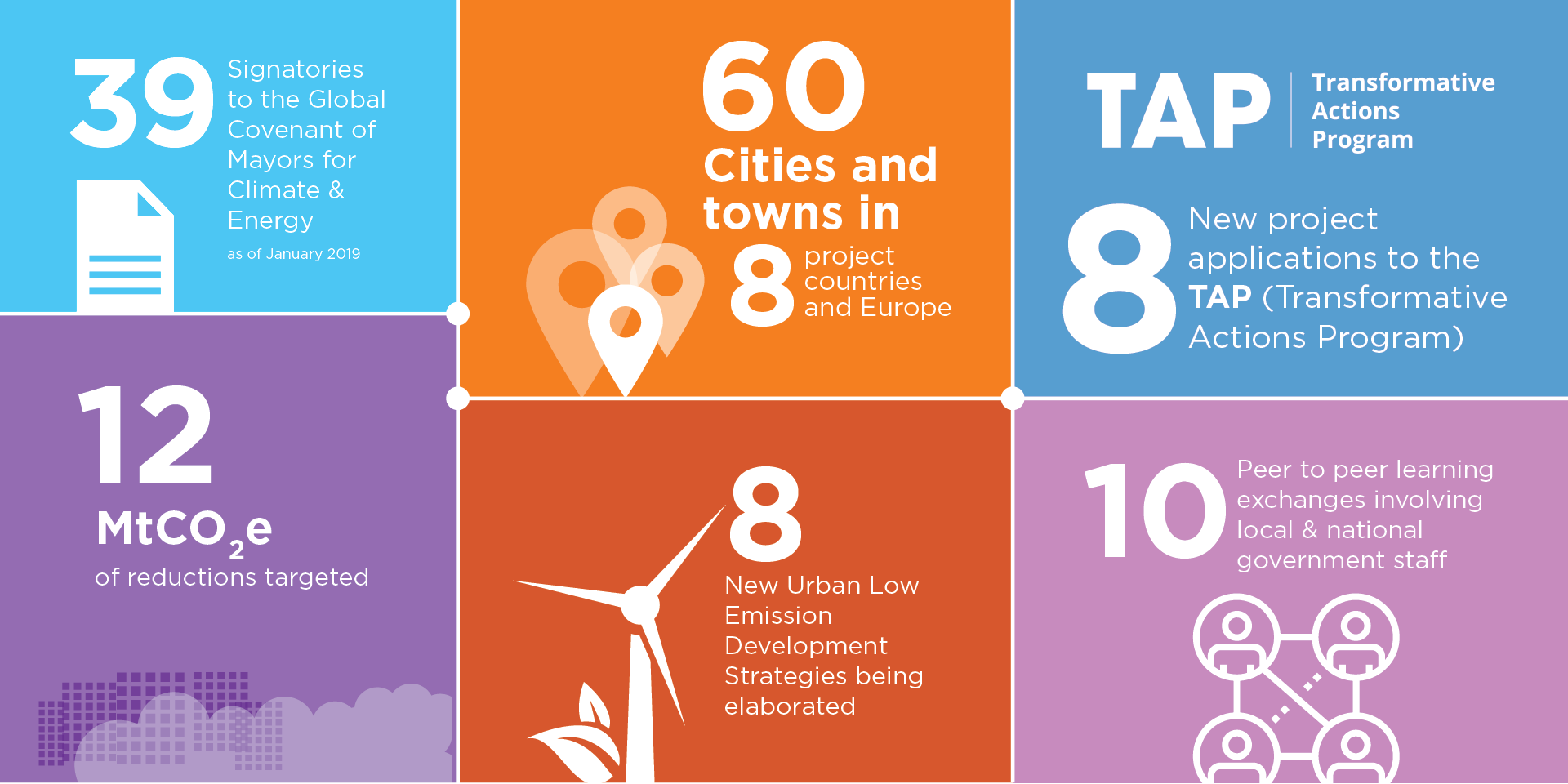Achievements of Phase II
Phase II has served as an expansion to Urban-LEDS, with local governments joining the project in 4 new countries: Bangladesh, Colombia, Lao PDR, and Rwanda.
In 2018, the in-country project focus was on establishing key relationships with national government ministries, project cities, and other stakeholders, formalized through the creation of National Project Advisory Groups. Existing systems of climate finance, reporting, and governance were analyzed in four countries, and pilot activities to strengthen multi-level governance were identified as a result. Local governments were welcomed into the project and their challenges were examined, their needs and opportunities were assessed and priorities identified, and corresponding capacity building through staff training were undertaken. The implementation of the Urban-LEDS II project covered the duration between 1 April 2017 to 31 December 2021 (including a 9-month no cost extension).
Phase II Project Goals

Globally, project partners have showcased Urban-LEDS and its core messages on multi-level governance and finance at various international events, including submitting a paper to the UNFCCC (United Nations Framework Convention on Climate Change) in collaboration with GIZ (German Development Agency). The project went into discussions with international finance partners, also in collaboration with the Global Covenant of Mayors for Climate & Energy (GCoM), to push for increased availability of finance for Urban-LEDS local governments.
From 2019, city-level project implementation accelerated. New data to inform decision-making was produced in the form of greenhouse gas emissions inventories and climate risk & vulnerability assessments. Pilot implementation projects were scoped and project proposals for larger climate projects were developed. Local government officials were offered and took the chance to meet each other during a study tour of European cities; the Urban-LEDS event highlight of 2019. Subsequently, targeted peer exchange events and workshops were organized to accelerate peer learning and replication of good practices.
